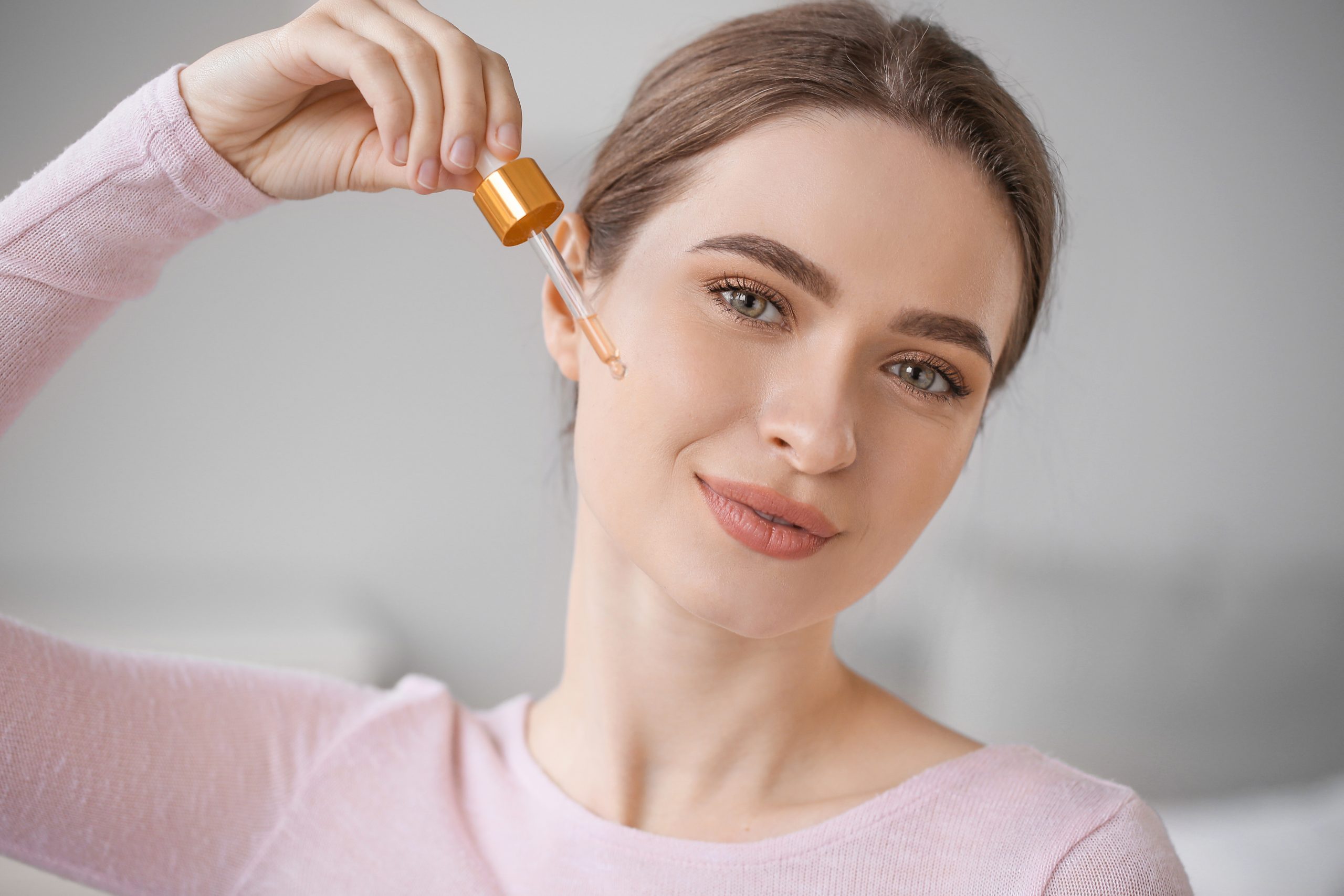
In the sea of dietary supplements, fish oil consistently surfaces as a popular choice for those seeking to enhance their health and wellness. Touted for its myriad benefits, ranging from bolstering heart health to potentially improving mental well-being, fish oil has captured the attention of health enthusiasts worldwide. But what lies beneath the surface of these glossy, omega-rich capsules? Is fish oil truly the panacea it’s often made out to be, or are there hidden depths to be explored?
In this comprehensive exploration, we dive deep into the world of fish oil, navigating through the waves of scientific evidence to bring you a clear, balanced perspective. We’ll explore not only the heralded benefits of this omega-3 powerhouse but also cast a net over its lesser-known side effects. From its impact on chronic conditions to the often-asked questions about its effects on skin health, no stone will be left unturned.
As you embark on this journey with us, prepare to have some myths debunked, learn practical tips for safe consumption, and gain a deeper understanding of how fish oil can fit into your health regimen. Whether you’re a long-time user or considering your first bottle, this post aims to equip you with the knowledge you need to make informed decisions about incorporating fish oil into your life.
So, let’s set sail and uncover the truth about fish oil – the benefits, the side effects, and everything in between.
[ez-toc]
What is Fish Oil and Its Primary Benefits?
Fish oil, a well-known dietary supplement, is primarily derived from the tissues of oily fish. Packed with omega-3 fatty acids, specifically docosahexaenoic acid (DHA) and eicosapentaenoic acid (EPA), it’s a crucial addition to a diet, given that our bodies can’t produce these essential nutrients independently.
Heart Health and Beyond
The spotlight on fish oil largely shines due to its significant benefits for heart health. Regular intake is associated with lowering triglyceride levels, reducing blood pressure, and diminishing the risk of heart diseases. The omega-3 fatty acids in fish oil are known for their ability to prevent plaque buildup in arteries and reduce inflammation throughout the body.
More Than Just Heart Health
But the benefits of fish oil extend beyond cardiovascular wellness. It’s been linked to aiding in mental health, improving conditions like depression and anxiety, and even showing potential in enhancing cognitive functions. For those with joint pain or rheumatoid arthritis, fish oil has been a beacon of relief, helping to alleviate discomfort and stiffness.
A Nutritional Powerhouse
Fish oil’s influence spans various aspects of health, making it more than just a heart-healthy supplement. Its anti-inflammatory properties contribute to its wide-ranging benefits, underscoring its role as a nutritional powerhouse in any health regimen.
In the next sections, we will delve deeper into the specifics of how fish oil impacts mental health, chronic conditions, and, notably, skin health, addressing the popular curiosity about its dermatological benefits.
Fish Oil and Mental Health
The connection between fish oil and mental health is an intriguing aspect of its benefits. Rich in omega-3 fatty acids, fish oil is believed to play a significant role in brain health and emotional well-being.
Boosting Brain Function
Omega-3s are crucial for optimal brain function. Given that a significant portion of our brain is made up of fats, including these fatty acids in your diet can contribute positively to cognitive performance. This is particularly evident in areas such as memory, focus, and overall mental clarity.
Alleviating Symptoms of Mental Health Conditions
Several studies have highlighted the potential of fish oil in managing symptoms of mental health conditions like ADHD, depression, and anxiety. By influencing brain chemistry and reducing inflammation, which is often heightened in mental health disorders, fish oil can offer a natural adjunct to traditional treatment methods.
Fish Oil for Children and Adolescents
In children and adolescents, particularly those with developmental conditions like ADHD, fish oil supplementation has been associated with improvements in attention, behavior, and academic performance. This suggests that omega-3 fatty acids can be particularly beneficial during the crucial developmental stages of the brain.
In the next section, we will explore the role of fish oil in managing chronic conditions, further highlighting its versatile nature as a supplement.
The Role of Fish Oil in Chronic Conditions
Fish oil’s benefits extend into the realm of chronic conditions, showcasing its versatility as more than just a supplement for general wellness.
Combatting Rheumatoid Arthritis
For individuals battling rheumatoid arthritis, fish oil offers a glimmer of hope. Its anti-inflammatory properties are particularly effective in reducing joint pain and stiffness. In some cases, fish oil supplements have shown to reduce the dependence on anti-inflammatory medications, offering a more natural approach to pain management.
Slowing Cognitive Decline
As we age, the risk of cognitive decline and diseases like Alzheimer’s increases. Fish oil may play a pivotal role in slowing this decline. The omega-3 fatty acids in fish oil are essential for brain health and function, potentially helping to preserve cognitive abilities and even prevent brain atrophy in older adults.
Diabetes and Fish Oil
For those with diabetes, fish oil has shown promise in reducing the risk of cognitive deficit and other complications associated with the disease. By protecting cells in the hippocampus and reducing oxidative stress, fish oil can be a valuable supplement for managing diabetes-related risks.
Potential in Cancer Prevention
Emerging research suggests that fish oil could also play a role in preventing various cancers. Its anti-inflammatory and immunomodulatory effects may inhibit cancer cell growth, offering a complementary approach to traditional cancer therapies.
In the upcoming section, we’ll shift our focus to the skin, unraveling the truths about fish oil’s impact on dermatological health and addressing the much-asked question about its use on the face.
Fish Oil for Skin Health
The benefits of fish oil extend to the skin, making it a topic of interest for those seeking natural ways to enhance their dermatological health.
Nourishing the Skin
Fish oil is rich in fats and fat-soluble vitamins, crucial for maintaining smooth, elastic skin texture. Its omega-3 fatty acids are known for their nourishing properties, helping to keep the skin hydrated and preventing dryness.
Anti-Aging and Sun Protection
One of the standout benefits of fish oil for skin is its potential anti-aging effects. Omega-3s can help reduce the signs of photoaging, like wrinkles, and may even offer some protection against skin cancer and sun-induced inflammation. These protective properties are attributed to fish oil’s anti-inflammatory actions.
Dealing with Skin Conditions
For individuals struggling with skin conditions like eczema or psoriasis, fish oil can provide relief. Its ability to reduce inflammatory substances in the body makes it a helpful supplement for managing these conditions. Regular intake of fish oil can lead to improvements in skin redness, itching, and scaling.
Fish Oil Directly on the Skin
Applying fish oil directly to the face is a topic of interest for many. While consuming fish oil benefits the skin from within, topical application can provide more direct benefits. It can help in moisturizing the skin, reducing inflammation, and even in wound healing. However, it’s important to be cautious with direct application, especially for those with sensitive skin or allergies.
In the next section, we’ll delve into the side effects of fish oil, providing a balanced view of this popular supplement.
Understanding the Side Effects of Fish Oil
While fish oil is celebrated for its numerous health benefits, it’s crucial to be aware of its potential side effects. Understanding these can help in optimizing its use while minimizing any adverse effects.
Common Side Effects
Many of the side effects associated with fish oil are mild and often manageable:
- Fishy Aftertaste and Breath: A common complaint among fish oil users is the lingering fishy aftertaste and bad breath.
- Digestive Issues: Some individuals may experience heartburn, nausea, or diarrhea, particularly when starting the supplement or at higher doses.
- Skin Reactions: Although rare, some people might develop a rash as a reaction to fish oil.
Serious Concerns
Apart from the milder side effects, there are a few more serious concerns to consider:
- Increased Bleeding Risk: High doses of fish oil can thin the blood, increasing the risk of bleeding. This is particularly important for individuals on blood-thinning medications.
- Possible Stroke Risk: In very high doses, there’s a concern that fish oil might increase the risk of stroke, although this is less common.
Interactions with Medications
Fish oil can interact with certain medications, potentially altering their effects. For instance:
- Blood Pressure Medications: Fish oil might enhance the blood pressure-lowering effects of these drugs.
- Anticoagulant and Antiplatelet Drugs: There’s an increased risk of bleeding when fish oil is taken alongside these medications.
Allergic Reactions
While fish oil is generally safe for most, those with seafood allergies should proceed with caution. It’s recommended to consult a healthcare provider before starting fish oil supplements if you have a known allergy.
In the final section, we will wrap up with some practical tips on fish oil dosage and safe consumption, ensuring you can make the most out of this beneficial supplement.
Practical Tips: Dosage and Safe Consumption of Fish Oil
To maximize the benefits of fish oil while minimizing potential side effects, it’s important to consider dosage and the quality of the supplement. Here are some practical tips to guide you:
Understanding the Right Dosage
- General Health: For overall health maintenance, a lower dose of fish oil, typically around 1 gram per day, is often sufficient.
- Specific Conditions: Higher doses may be required for specific health issues like high triglycerides or rheumatoid arthritis. It’s crucial to follow a healthcare provider’s recommendation in these cases.
- Maximum Limits: Generally, it’s advised not to exceed 3 grams of fish oil per day from supplements to avoid increased risks of bleeding or other side effects.
Choosing Quality Supplements
- Purity and Quality: Look for supplements that have been tested for purity and free of contaminants like mercury.
- Form of Fish Oil: Supplements come in various forms, including natural fish oil (like cod liver oil), concentrated fish oil, and capsules. Choose a form that suits your preference and dietary needs.
- Certifications: Check for certifications or third-party testing to ensure the quality and accuracy of what’s stated on the label.
Safe Consumption Practices
- With Meals: Taking fish oil with meals can help reduce digestive side effects and improve absorption.
- Start Slow: If you’re new to fish oil, start with a lower dose and gradually increase it to allow your body to adjust.
- Monitor for Reactions: Pay attention to how your body responds, especially if you’re taking other medications or have existing health conditions.
Consulting Healthcare Providers
- Always consult with a healthcare professional before starting any new supplement, especially if you have health concerns or are taking other medications.
Storing Fish Oil
- Store fish oil supplements as directed, usually in a cool, dry place. Some types may require refrigeration.
By following these guidelines, you can make an informed decision about incorporating fish oil into your health routine, reaping its benefits while ensuring safety and efficacy.
Conclusion
In our deep dive into the world of fish oil, we’ve uncovered a treasure trove of benefits, from bolstering heart health and aiding mental well-being to improving skin health and managing chronic conditions. Yet, like any supplement, it’s not without its side effects and considerations.
Fish oil stands out as a potent source of omega-3 fatty acids, essential nutrients that our bodies cannot produce independently. Its widespread benefits underscore its importance in a balanced diet, whether through food sources or supplements. However, as we’ve seen, the approach to consuming fish oil should be measured and informed, with an understanding of both its potential benefits and limitations.
While fish oil supplements can be a valuable addition to your health regimen, it’s essential to navigate their use with awareness. Understanding the correct dosage, choosing high-quality supplements, and being mindful of interactions and side effects are key steps in harnessing the power of fish oil effectively and safely.
As we conclude this exploration, remember that supplements like fish oil are part of a broader health picture. A balanced diet, regular exercise, and consultation with healthcare professionals are indispensable components of overall well-being.
We hope this journey through the benefits and side effects of fish oil has been enlightening and empowering, providing you with the knowledge to make informed decisions about incorporating this supplement into your life.
Call to Action
Do you have experiences or insights about using fish oil? Feel free to share them in the comments below. Your stories could help others make better-informed decisions about their health. And for more health and wellness insights, don’t forget to subscribe to our blog. Let’s continue to explore and embrace the journey to better health together!













